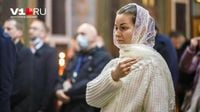As Easter approaches, Ukrainian Christians prepare to celebrate the holiday on April 20, 2025, according to the new church calendar. This significant occasion marks a time of joy, spiritual renewal, and the preservation of cherished traditions, including the baking of paska and the coloring of eggs.
For many, the preparation of paska, a traditional Easter bread, is a highlight of the holiday festivities. According to longstanding customs, paska is typically baked on Holy Thursday, which falls on April 17, 2025, or on Great Saturday, April 19, 2025. Baking paska on Holy Thursday is believed to bring happiness to the home, a sentiment echoed by many families across the nation.
Holy Thursday, known as Clean Thursday, is a day filled with spiritual cleansing and preparation. On this day, believers are encouraged to wake up before sunrise and wash with silver water, a practice believed to have healing properties. This involves leaving a silver object in water overnight, which is then used for washing in the morning. After their morning rituals, many head to the bathhouse to cleanse their bodies before attending the church service.
During the liturgy on Clean Thursday, the Last Supper is commemorated, a pivotal event in Christianity. Following the service, congregants partake in communion, an essential aspect of the day's spiritual observance. To ensure that they are not distracted by mundane tasks during the Easter celebrations, it is recommended that all household chores be completed on Clean Thursday.
As part of the preparations for the festive table, Orthodox Christians traditionally prepare various dishes, including meat, Easter cakes, and eggs. However, it is important to note that those observing the fast are prohibited from tasting even a small piece of paska on this day. "Endure; Easter is just around the corner," many remind each other.
Another intriguing tradition on Clean Thursday is the preparation of Thursday salt. This involves mixing regular salt with herbs and soaked rye bread, which is then baked until it turns black. This special salt is often used in cooking but is also considered a protective charm, placed in the center of the dining table to attract prosperity.
As families gather to prepare for Easter, they also observe certain prohibitions on Clean Thursday. It is advised against engaging in arguments, using foul language, or consuming excessive alcohol. Additionally, believers are reminded to avoid preparing Easter dishes in unclean spaces and to refrain from leaving dirty dishes after meals. Superstitions surrounding the day discourage any form of divination, as it is believed that such practices distract from the divine.
Following Clean Thursday, Good Friday, which falls on April 18, 2025, is a day of mourning and reflection, commemorating the crucifixion of Jesus Christ. Traditionally, it is not advisable to bake paska on this day, as it is a time for somber remembrance rather than celebration.
The coloring of eggs is another cherished tradition associated with Easter. Symbolizing life, rebirth, and Christ's victory over death, egg coloring typically occurs on either Clean Thursday or Great Saturday. Many families opt to color their eggs on Clean Thursday to prepare their Easter baskets in advance, while others prefer to wait until Great Saturday, when all dishes must be ready for the blessings that occur during the night leading into Easter Sunday.
As the holiday draws near, communities across Ukraine are abuzz with excitement, eager to celebrate the resurrection of Christ. The blend of spiritual observance and festive preparation creates a unique atmosphere of anticipation and joy.
In summary, the upcoming Easter celebrations in Ukraine highlight the importance of tradition, community, and spiritual renewal. With Clean Thursday and Good Friday setting the stage for the joyous Easter Sunday, families are reminded to embrace their customs while reflecting on the deeper significance of the holiday.




